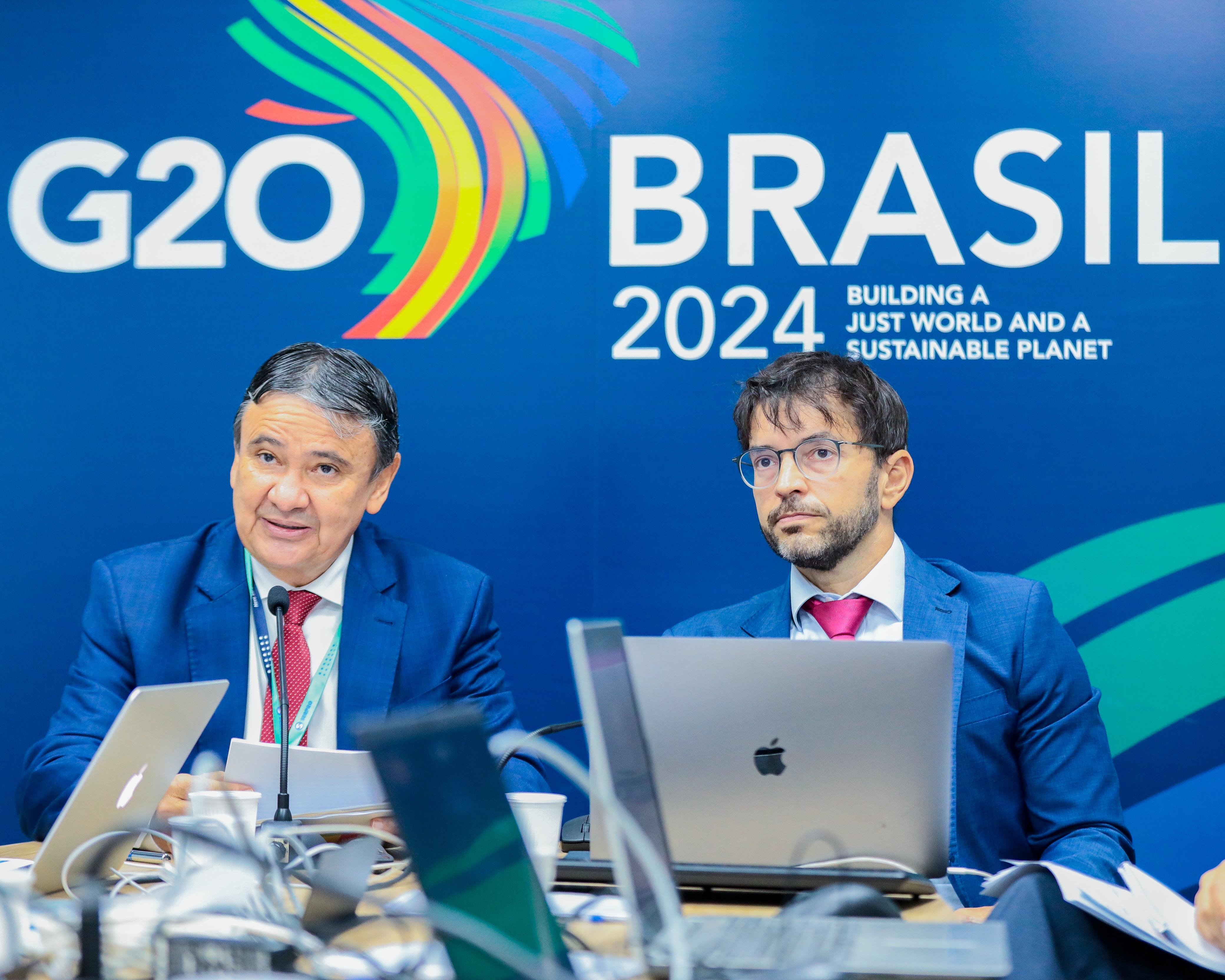To Brazil's Minister Wellington Dias, the Global Alliance against Hunger and Poverty will be a practical mechanism to mobilize financial resources to combat food insecurity. The minister held a press conference on February 21 at the G20 headquarters in Brasília.

Brazil'sMinister Wellington Dias for Development and Social Assistance, Family and the Fight Against Hunger-also Coordinator of the Task Force for the G20 Global Alliance against Hunger and Poverty-held a press conference this Wednesday (21) at the G20 headquarters in Brasilia. Dias spoke at the opening of the task force's first meeting, to be held between February 21 and 23, via videoconference.
The meeting will focus on four reports by international organizations about tackling poverty and hunger-including topics such as sustainable food production, social protection, building resilience, and ways of making international collaboration more effective.
A term for countries interested in joining the Global Alliance against Hunger and Poverty will also be discussed. All G20 members are expected to participate, including the African Union and the European Union, as well as several invited countries and international organizations such as IDB, ECLAC, IMF, World Bank, WTO, UNESCO, FAO, WHO and UNICEF, among others.
According to Minister Wellington Dias, the reports highlight how important it is for a State to have a range of public policies tackling this issue, within a legal framework and with sufficient scale and funding. Due to the current context of multiple crises-climate, environment, economy and conflicts-food insecurity and poverty are increasing again in the world. The minister mentioned data such as the income of the richest being 38 times greater than that of the poorest. The richest 10% own 76% of the world's wealth, while the poorest 50% own just 2%. Furthermore, according to FAO, around 735 million people are going hungry on a planet capable of producing food for everyone.
"What we want with the Alliance is a practical mechanism to mobilize financial resources and knowledge from where they are most abundant and to channel them to where they are most needed. In this way, to support the implementation and expansion of the scale of actions, policies and programs at national level," stated the minister.
Aligned with global agendas
The Alliance is based on two principles: focus on the poorest and most vulnerable, and consistent implementation of national policies. The group proposes the union between countries to achieve the Sustainable Development Goals (SDGs) 1 and 2-the eradication of hunger, extreme poverty and the promotion of sustainable agriculture. According to the minister, the group's approach can have a positive impact on the lives of the poorest, with decisive action from the State and well-targeted policies. "As President Lula says: 'it is about putting the poor in the budget and the rich in the income tax'," said Wellington Dias.
Like other countries, Brazil's experience-with programs such as Bolsa Família, for example-reveals the impact of implementing good public policies against hunger and poverty. The minister noted that, in recent years, when certain programs were distorted or eliminated, hunger returned, and poverty increased in Brazil. "We are now fighting to reactivate these programs, even more strongly, and to take Brazil off the Hunger Map once again," stated Wellington Dias.
The work of the Task Force will continue throughout the year, with new meetings in March, in Brasília, and in May, in Teresina. The idea is to create a document-in agreement with the other countries-to be presented in July at the ministerial meeting in Rio de Janeiro. Following the ministerial meeting, the intention is to expand the Alliance beyond the G20, and to reach the Summit, in November, in Rio de Janeiro, with a truly global Alliance that includes as many countries as possible.
Healthy eating
According to Minister Wellington Dias, the topic of healthy eating and the commercialization of small farmers' produce was discussed alongside concrete measures. Experiences in Africa-where food production was multiplied simply using technology to replace wooden plows-were also discussed at the meeting. This reveals the importance of innovation and support for family farming in eradicating poverty around the world. Also, according to the minister, it is crucial to invest in processing and trade. "This is a concern of ours, because it is one of the difficulties that the reports indicate as affecting the poorest: they often manage to produce, but face difficulties when it comes to marketing."
President Lula's initiative
The idea of establishing a Global Alliance against Hunger and Poverty is an initiative by President Luiz Inácio Lula da Silva, and began when Brazil took on the presidency of the G20. The idea is to offer successful experiences to the group's member countries and to other nations that want to adapt and implement public policies. To this end, the Task Force strives to establish technical foundations and negotiate its main elements towards creating a robust and autonomous Alliance.






